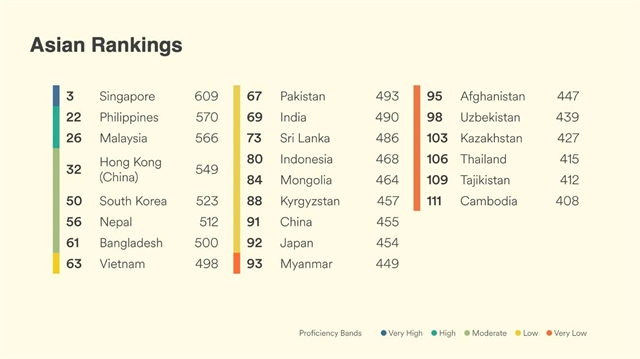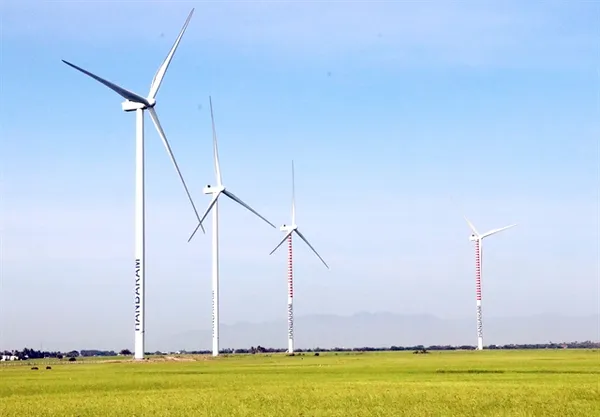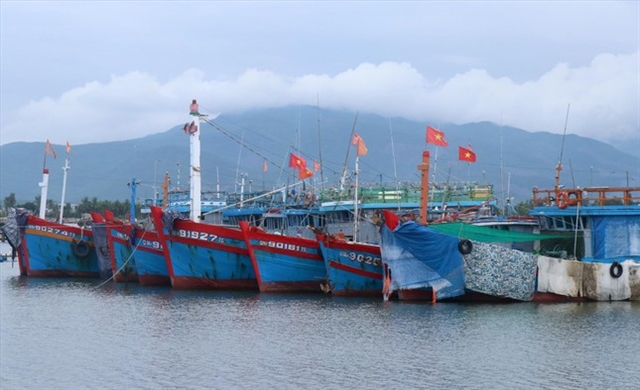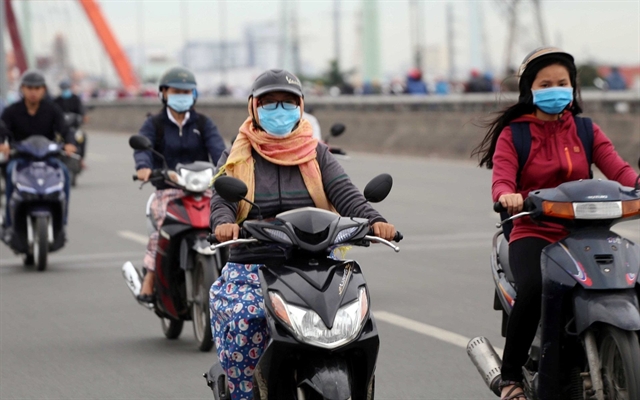 Environment
Environment

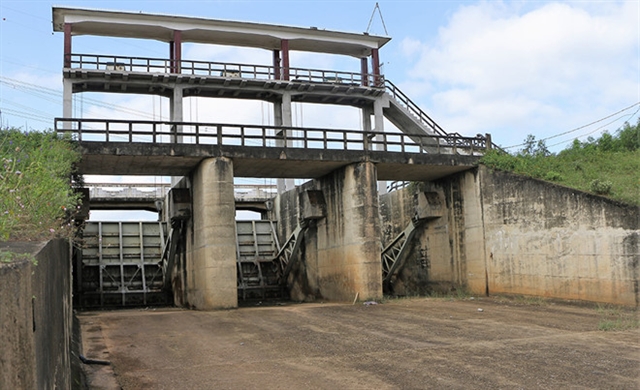
|
| One of the many reservoirs in Quảng Bình Province that have dried up due to prolonged hot weather and drought. — Photo thanhnien.vn |
QUẢNG TRỊ — Prolonged hot weather in the central region has caused low water levels in reservoirs and dams, seriously affecting agricultural production and the daily lives of local residents.
Many reservoirs in the central province of Quảng Trị have recorded receding water levels at less than 35 per cent of their storage capacity, threatening crops on nearly 2,500ha of land.
Trần Hồng Quang, director of Quảng Bình Irrigation One-member Limited Company, said the water level at irrigation works in Quảng Bình Province has fallen to a record low. Only three out of 17 reservoirs were at capacity and the rest were sitting at 40-50 per cent of storage capacity, meaning that nearly 1,700ha of summer-autumn rice lacked water, he said.
Thừa Thiên-Huế Province faces a similar problem. More than 130ha of summer-autumn rice was seriously damaged by the drought.
In addition to having 13,000ha of agricultural land affected by the drought, the central province of Quảng Nam has also been hit by salt intrusion.
Due to ongoing drought, hydropower plants cut their power generation late last month.
In Phú Mỹ District of Bình Định Province, dozens of hectares of rice have withered. Farmers have had to cut their living rice plants to feed cattle and have collected dead plants for cooking.
“Because irrigation water is not available and it has not rained, we can only watch as our rice plants wilt and die. We have no choice but rent a machine to clean up the fields,” Phạm Kim Anh, a resident of Mỹ Châu Commune’s Văn An Village, told Thanh Niên (Young People) newspaper.
Nguyễn Văn Hồng, deputy head of Phú Mỹ District’s Agricultural and Rural Development Division, said 40 out of 45 reservoirs have dried up. Local authorities have had to pump water from reservoirs’ dead storage capacity (the volume below which water cannot be release from the dam) to rescue drought-hit rice growing areas.
Trần Châu, deputy chairman of Bình Định Province People's Committee, said Phú Mỹ District has also seen the fresh water shortage trouble local people. It was reported that people have been forced to pay up to VNĐ150,000 per cubic metre of fresh water.
The provincial People’s Committee has directed the police and border guards to bring water tanks to people, he said.
In Quảng Ngãi, more than 1,500ha of rice and cash crops have dried up.
Phạm Hồng Nguyên, director of of Bình Sơn District’s Agriculture and Rural Development Division, said there has been no rain in a number of communes in the district since February.
To cope with the situation, the local authority has spent nearly VNĐ1.1 billion (US$47,200) to help local residents drill wells or purchase fuel to pump water. The funds have also been used to dredge canals.
The Quảng Trị People’s Committee has proposed the Ministry of Agriculture and Rural Development and the Ministry of Finance ask the Prime Minister's petition to grant VNĐ115 billion ($4.9 million) in emergency response funds to save crops.
Đà Nẵng has called on its residents to save water during the shortage. The People’s Committee of Hòa Vang District has collaborated with irrigation management companies to step up measures to cope with the scarcity, including restructuring plants. — VNS





